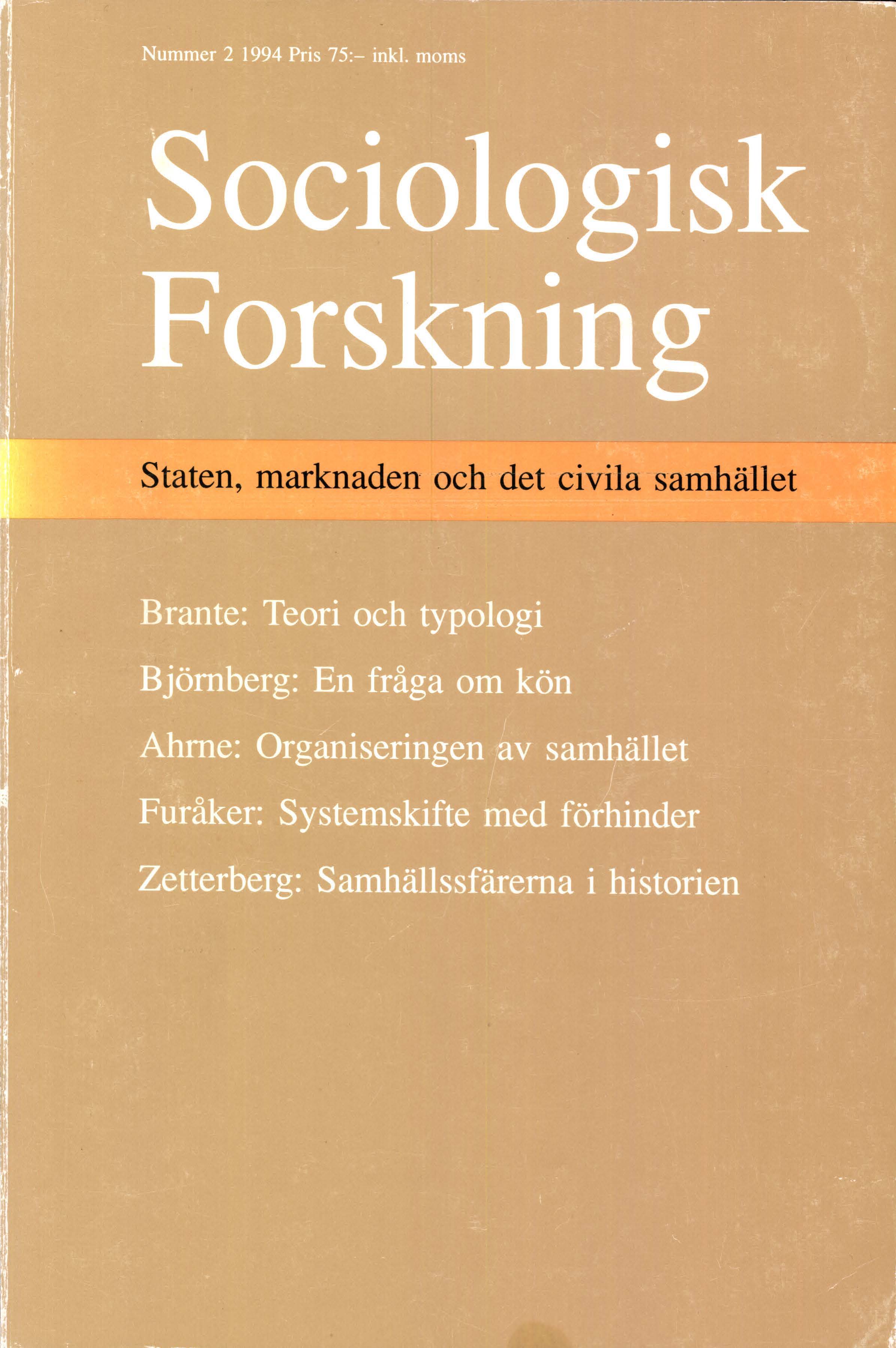Teori och typologi: Om förhållandet mellan makrosociologi, institutionella sfärer och social handling
DOI:
https://doi.org/10.37062/sf.31.18609Abstract
Theory and typology. Macrosociology, institutional spheres and social action
The conceptual triad ’state-market-civil society’ is taken as point of departure for a discussion of the broader issue of the uses of typologies in sociology. It is argued that in order to avoid being subordinated to politically loaded notions pervading public discourse, a genuine sociological typology should meet two demands; its dimensions should be derived from a macro-sociological theory, and it should be underpinned by a micro-sociological theory of action. In this way, a typology will serve as a pipeline between micro and macro theories, and also as a checking point for estimating the coherence between these two levels of analysis. As an illustration, Mary Douglas’ grid-group model is introduced. This typology is derivable from Durkheim’s macro-sociology, but it has a weak microfoundation. Two theories of action are discussed and compared; the theory of rational choice and the theory of interaction rituals. After demonstrating that the theory of rational choice is incommensurable with the ”multi-rational” premises of the grid-group model, itis indicated that an elaboration of the Goffmanian theory of interaction rituals would constitute a viable micro-foundation for the grid-group model. Finally, it is concluded that from the point of view of grid-group, ’civil society’ is a highly ambiguous category that should be replaced by the categories of ’community’ and ’isolate’.
Downloads
Published
How to Cite
Issue
Section
License
All content in Sociologisk Forskning is published with immediate open access, under the Creative Commons license CC BY-NC-ND 4.0.
All content may be read, downloaded, shared and printed for non-commercial purposes, free and without fees. Contents may not be altered. When content is reused, author, source and a link to the copyright licence must be provided. The author retains copyright to their content. No publication fees are charged.





